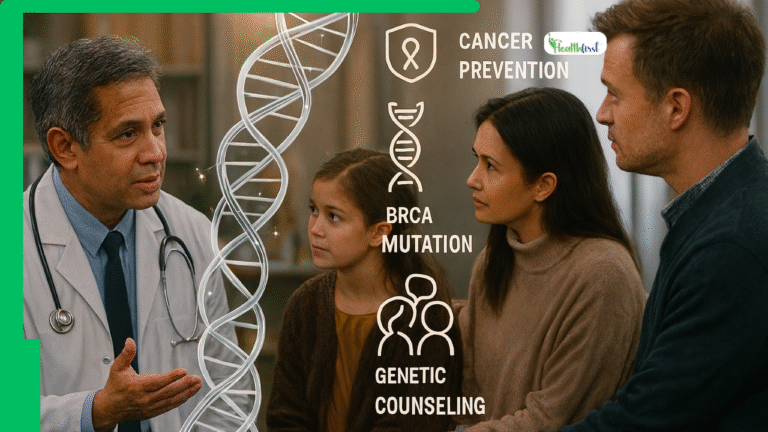Infertility can be an emotionally draining and challenging experience for many couples. The inability to conceive or carry a pregnancy to term can lead to feelings of sadness, anger, frustration, and even depression. Understanding and addressing the emotional aspects of infertility is just as important as the medical interventions. In this article, we will explore various emotional coping strategies that can help individuals and couples navigate the psychological challenges associated with infertility.
The Emotional Impact of Infertility
Infertility is often referred to as a silent struggle because it affects not just the physical ability to conceive but also the emotional and psychological well-being of those involved. The emotional toll of infertility can manifest in several ways:
- Stress and Anxiety: The constant uncertainty, repeated medical appointments, and procedures can lead to chronic stress and anxiety. Couples often feel as if they are on an emotional rollercoaster, with hope followed by disappointment.
- Depression: Prolonged periods of infertility can lead to depression, characterized by feelings of hopelessness, loss of interest in daily activities, and persistent sadness.
- Grief and Loss: Infertility often involves a grieving process for the loss of the envisioned family and the biological connection to a child.
- Guilt and Shame: Individuals may feel guilt or shame, especially if they believe they are the cause of infertility or if societal or familial pressure adds to their distress.
- Impact on Relationships: Infertility can strain relationships, not only between partners but also with family and friends. The inability to relate to others who have children or who don’t understand the experience can lead to isolation.
Coping Strategies for Individuals and Couples
While the journey through infertility is unique for each individual and couple, several coping strategies can help manage the emotional aspects:
- Open Communication
- Maintaining open and honest communication between partners is crucial. Sharing feelings, fears, and frustrations can help both partners feel understood and supported. It’s essential to create a safe space where each person can express their emotions without judgment.
- Seek Professional Counseling
- Infertility counseling or therapy with a licensed mental health professional specializing in fertility issues can provide a supportive environment to explore feelings and develop coping strategies. Cognitive-behavioral therapy (CBT) is particularly effective in managing anxiety and depression associated with infertility.
- Join Support Groups
- Support groups, either in-person or online, offer a sense of community and understanding. Connecting with others who are going through similar experiences can reduce feelings of isolation and provide valuable emotional support and coping strategies.
- Practice Mindfulness and Relaxation Techniques
- Mindfulness practices, such as meditation, yoga, and deep breathing exercises, can help reduce stress and anxiety. These techniques promote relaxation and help individuals stay grounded in the present moment rather than becoming overwhelmed by future uncertainties.
- Set Realistic Expectations
- It’s important to set realistic expectations about the fertility journey. Understand that there may be setbacks and that treatments may not always result in success. Setting achievable goals and celebrating small victories can help maintain a positive outlook.
- Limit Exposure to Triggers
- Certain situations, such as attending baby showers or being around pregnant friends, may trigger emotional pain. It’s okay to set boundaries and limit exposure to these situations to protect your emotional well-being.
- Engage in Self-Care Activities
- Regular self-care activities, such as exercise, hobbies, or spending time with loved ones, can provide a sense of normalcy and joy. Engaging in activities that bring pleasure and relaxation can help improve overall mood and emotional resilience.
- Educate Yourself
- Knowledge can be empowering. Understanding the medical aspects of infertility, the treatments available, and the potential outcomes can help individuals feel more in control of their journey. It can also help in making informed decisions about their options.
- Consider Alternative Paths to Parenthood
- For some couples, considering alternative paths to parenthood, such as adoption or surrogacy, can provide a sense of hope and direction. Discussing these options with a counselor or fertility specialist can help in understanding the emotional and practical implications.
- Strengthen the Support Network
- Building a strong support network of friends, family, and professionals can provide much-needed emotional support. It’s important to lean on trusted individuals who can offer empathy, understanding, and encouragement.
When to Seek Professional Help
While emotional coping strategies can be effective, there are times when professional help is necessary. Consider seeking professional support if:
- Feelings of sadness or hopelessness persist for more than two weeks.
- Anxiety or stress becomes overwhelming and interferes with daily functioning.
- There is a strain on the relationship between partners that cannot be resolved through communication.
- There are thoughts of self-harm or harming others.
Infertility is not just a medical condition but also an emotional experience that affects every aspect of a person’s life. By adopting effective coping strategies and seeking professional support, individuals and couples can navigate the emotional challenges of infertility with greater resilience and hope. Remember, you are not alone in this journey, and with the right support, you can find a path forward.









